Self-Hosting Guide to Alternatives: Airtable
Self-hosted alternatives for the popular relational database platform

Airtable is a popular SaaS platform for collecting, visualizing, and sharing data through low-code applications built on relational databases from a spreadsheet-like interface. Like Notion, Airtable has gained widespread popularity across individual and enterprise settings as an easy way to manage projects, event planning, calendars, roadmaps, inventories, and more.
Fortunately, a number of self-hosted projects have gained popularity in the last several years as viable alternatives for replicating Airtable's experience without sacrificing cost or privacy.
NocoDB
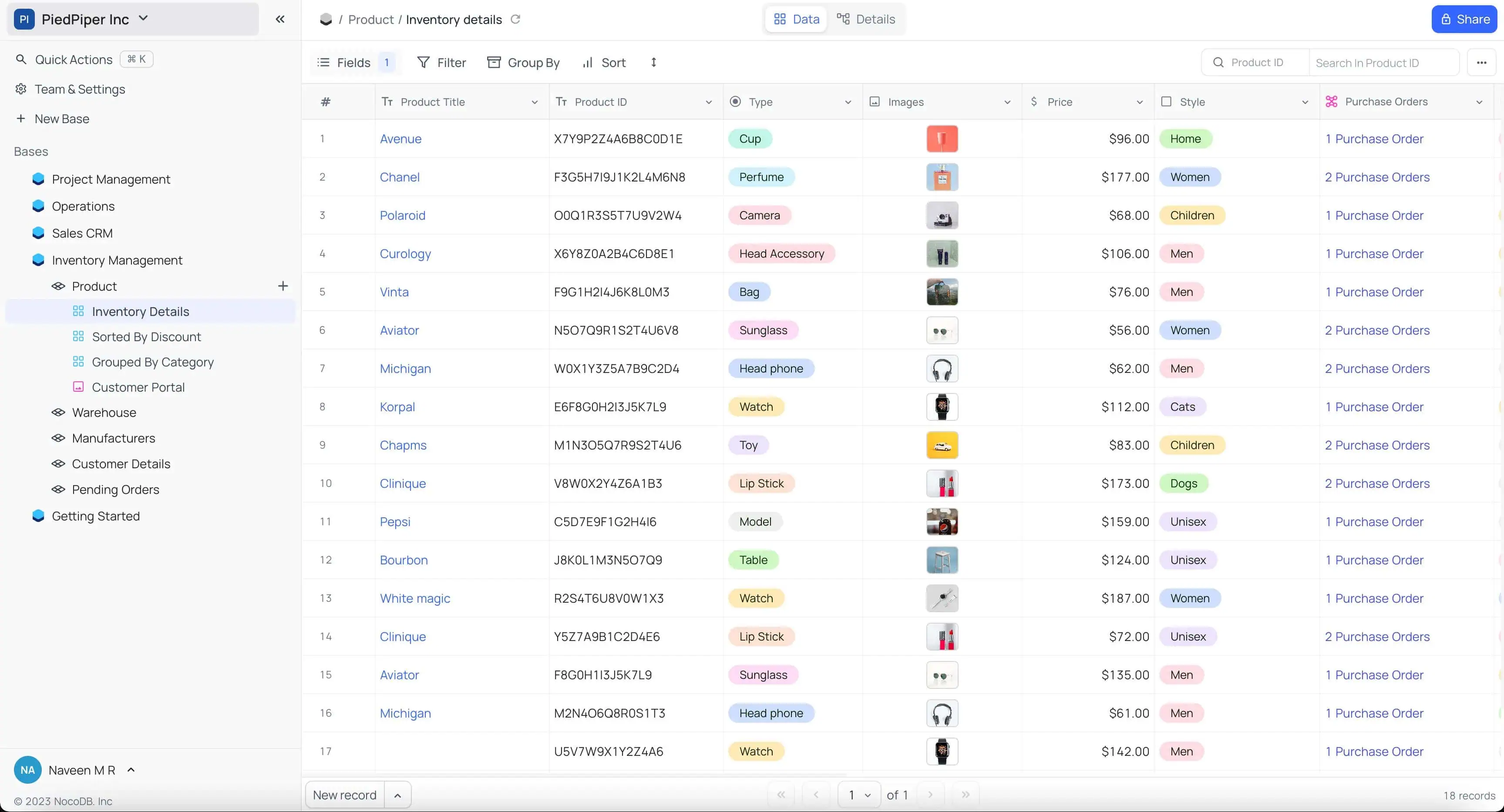
NocoDB is arguably the most popular self-hosted Airtable alternative and its feature set is evidence as to why with support for various views (gallery, Kanban, forms, calendar), a mature API, and a small app (integration) store. The platform has a modern, minimal design and makes navigating, sorting, and grouping trivial as the various views are traversed.
Like most of the alternatives in this article, self-hosters looking to avoid paying for a license will run into some restrictions when using NocoDB – namely unremovable branding on forms, a 10k row limit per workspace, and API limits.
NocoDB is fairly straightforward to deploy and offers a number of options for deployment based on the desired backend database (PostgreSQL, MySQL, SQLite).
Baserow
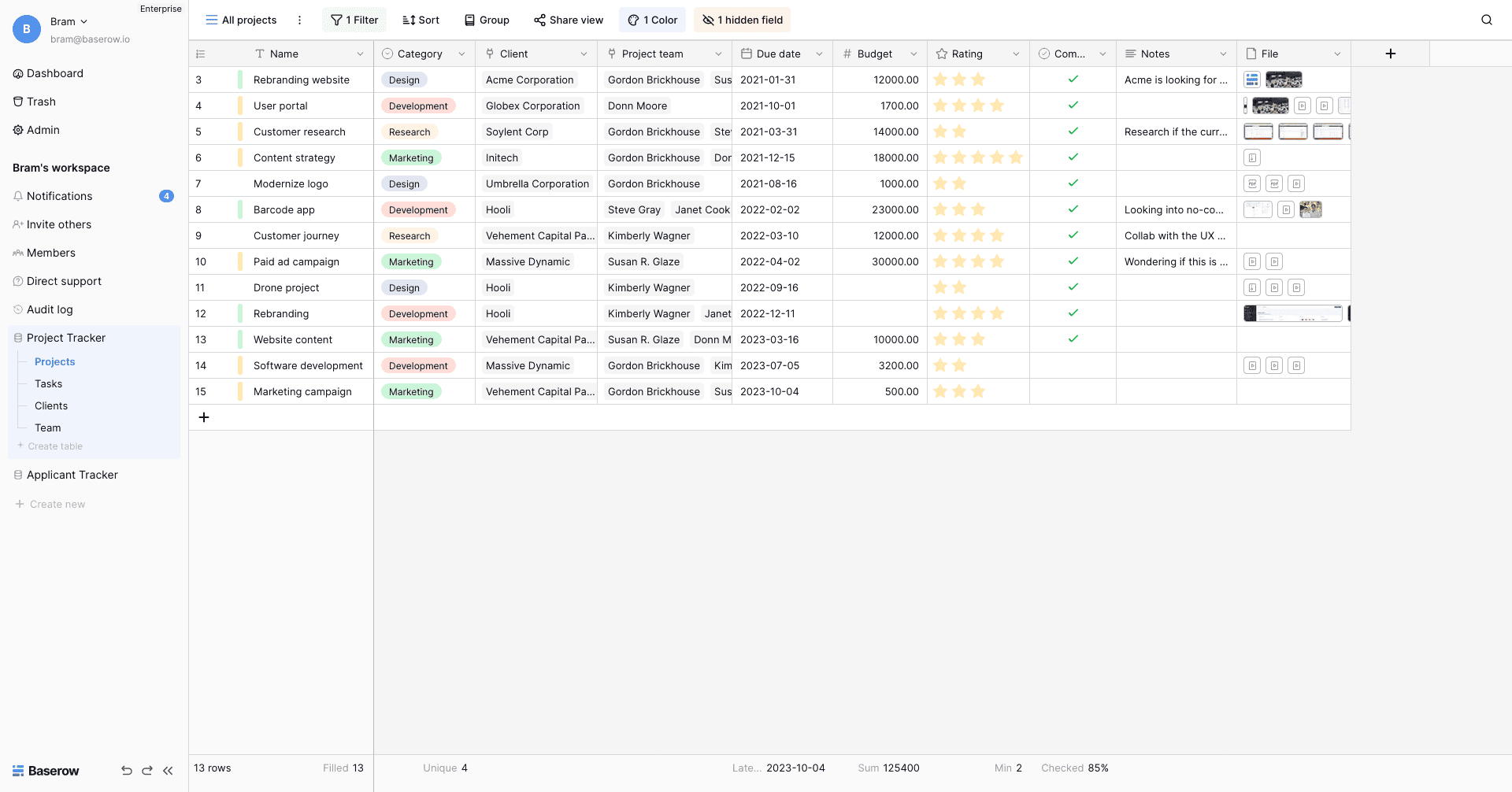
Baserow is another popular alternative to Airtable and commonly contrasted with NocoDB by users looking to deploy their own solution. The platform also sports a modern and intuitive interface, and functionality is similar in most areas – with the exception of its large template collection and application builder. The project's website also boasts connections to "thousands of other apps", but only because its actual integrations focus on a handful of automation tools that provide the connections (Zapier, n8n, and Make).
Baserow's unlicensed self-hosted option isn't subject to the storage restrictions of its hosted plans, but is still missing some key features – notably Kanban, survey, and calendar views. Self-hosters must also pay the SSO tax if they're looking for additional authentication options.
Deploying Baserow is straightforward and the development team provides a number of guides for deploying the platform via Docker, bare metal, or in the cloud.
Grist
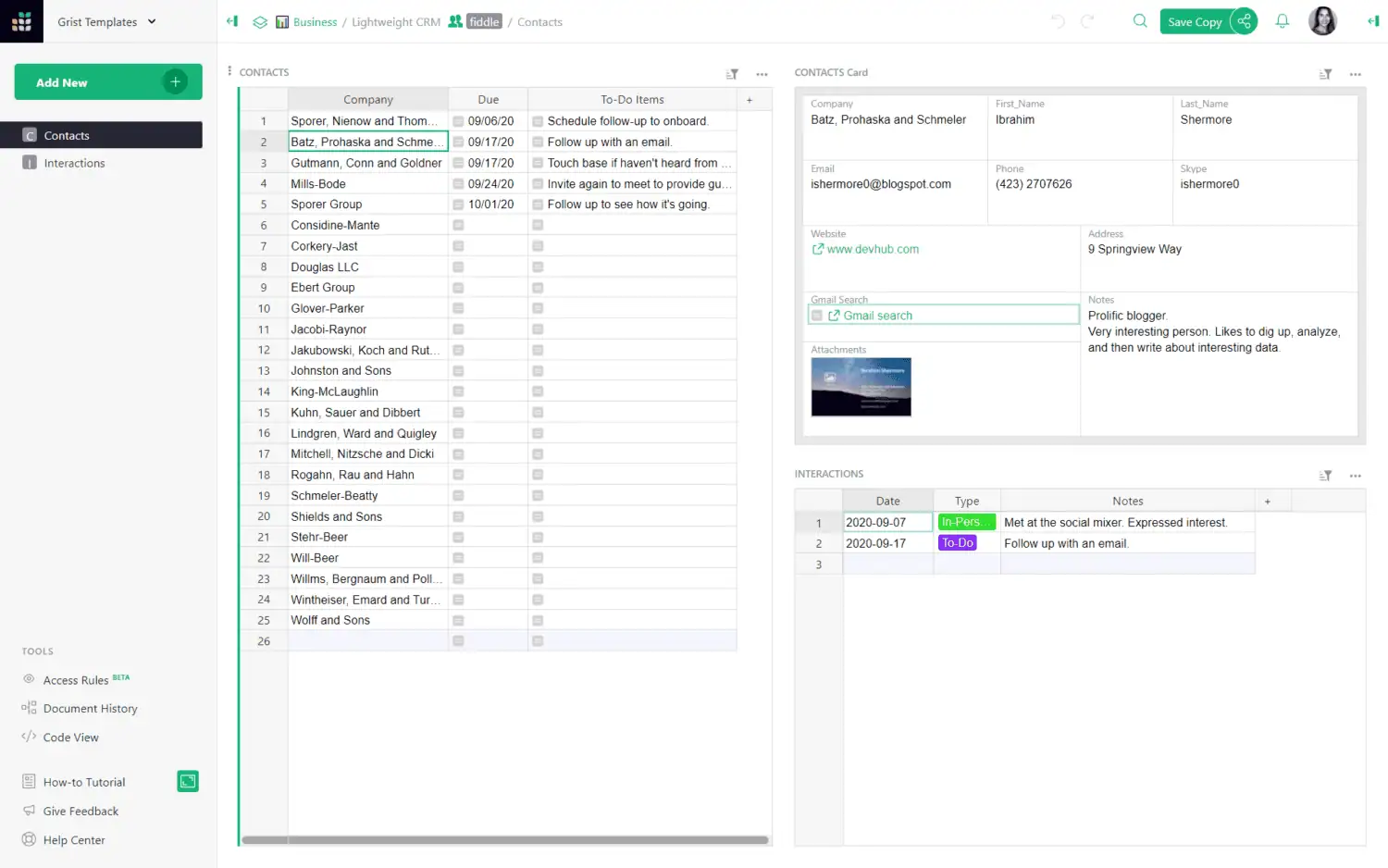
Grist is a capable alternative to Airtable that focuses a bit more on being a modern spreadsheet than the others. The platform lacks some of the visual polish and functionality of its predecessors (fewer column types and views), but makes up for it with a more robust collection of Excel-like formulas (something the others are sorely missing), Python functions, charts, and Baserow's collection of integrations plus a few more.
Grist's site indicates the open source version of the software includes "almost all features", but I was unable to find an official list of what isn't supported. I was, however, able to find a Reddit comment posted by a Grist team member in 2023 confirming multiple logins as the only missing feature – which can be bypassed with a custom authentication method.
Like the others, Grist is fairly easy to deploy and comes with recommended instructions for installing via container.
Undb
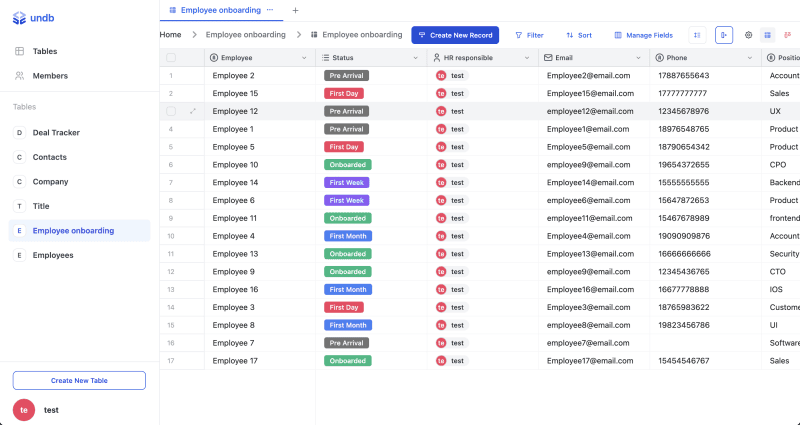
Undb is a relatively new project in the space of Airtable alternatives, but its current state, design, and roadmap features (the software is under very active development and missing several key features) make it a promising potential future alternative that I'll be keeping an eye on.
As of the time of writing, the Undb project team hasn't given any indication into whether any features will be restricted to enterprise licenses once development has matured. In the meantime, head over to the documentation for instructions on the many ways it can be deployed for usage and testing.
Nextcloud Tables
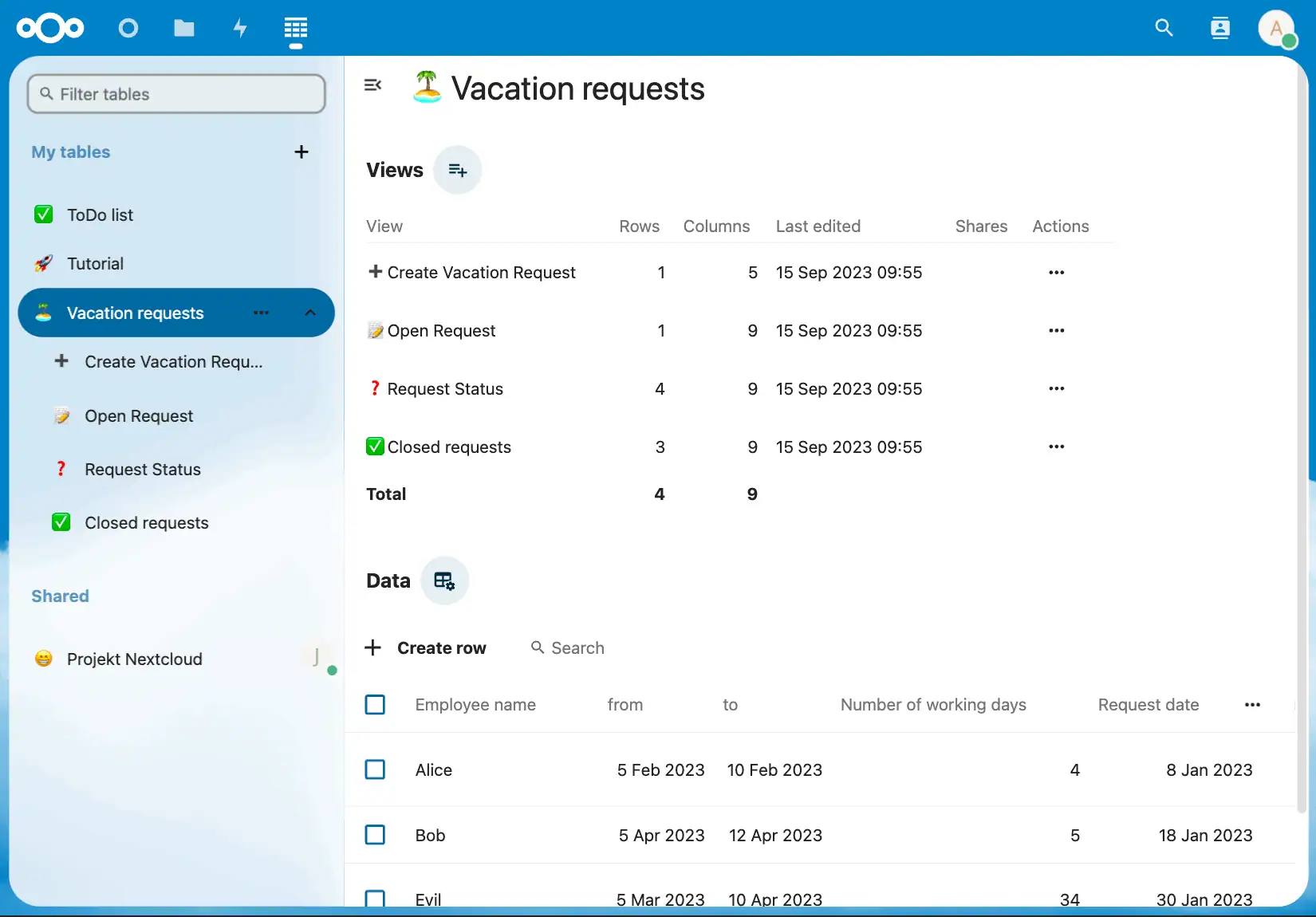
I'm hesitant to recommend Nextcloud Tables as a complete Airtable replacement given its lack of comparative functionality, but users with an existing Nextcloud deployment and constrained resources may find it an adequate alternative to some of Airtable's basic functionality.
The software installs as a Nextcloud app and allows users to create tables and views with a limited set of column types that can be shared with others. The project's wiki states the software has not been optimized for tables with thousands of rows, which may be a limiting factor for some.
Honorable Mentions
As usual, I encountered many Airtable-like projects while writing this article that I was unable to recommend as full-fledged alternatives. In the spirit of self-hosted software, I'm providing a list of these projects as someone else may find them helpful or more viable as replacements for specific Airtable functionality.
Projects to Avoid
While researching for this article, I found several promising alternatives that I eventually made the decision to exclude due to one or more major factors. While users are free to explore projects at their own discretion, I've provided a list of these projects and the reasons they were excluded below for transparency.
- Rowy: Installation requires Google Cloud or Firebase
- APITable: Misleading claims and license usage
What did I miss?
Did I miss anything? Feel free to reach out using any of the communication methods listed on the site's contact page to get in touch.


Comments